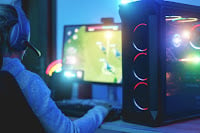“If we as psychiatrists can embrace addiction as a disease of the brain that disrupts the systems...
Overuse of Digital Technology May Indicate Addiction, Expert Says

Addiction to digital technology is bound to become an increasing focus of psychiatrists, wrote addiction psychiatrist Petros Levounis, M.D., M.A., in a recent Psychiatric News special report. Levounis is a professor and chair of the Department of Psychiatry and associate dean at Rutgers New Jersey Medical School.
“Just as happens with substances like alcohol or opioids, some people become so caught up in their virtual world that their real world—jobs, finances, relationships, physical health—begins to suffer,” Levounis wrote. “As smartphones and other modern devices become more and more integrated into all facets of life, understanding, identifying, and treating these technological addictions will become a significant aspect of psychiatric care.”
Diagnosing technological addictions accurately requires more research. “Only one technological addiction has been semi-officially recognized by APA as of DSM-5: internet gaming disorder is in Section III of our manual as a condition for further study,” he wrote. However, Levounis said that the framework used to define internet gaming disorder could be extended to other online behaviors that addiction specialists agree may be of concern: online gambling, online shopping, cybersex, internet surfing, texting/emailing, and social media.
Under the current DSM-5 entry, internet gaming disorder is likely present if someone meets five of the following nine symptom criteria over a 12-month period:
- Being preoccupied with video games.
- Experiencing withdrawal symptoms when video games are inaccessible.
- Requiring more and more playing time to gain the same level of satisfaction.
- Being unable to cut down on game playing despite efforts to do so.
- Giving up other activities to play more frequently.
- Deceiving family members about how much time is spent gaming.
- Using video games to alleviate negative moods.
- Jeopardizing jobs or relationships due to gaming.
- Continuing to play video games despite knowledge of adverse consequences.
Just as psychiatrists’ ability to diagnose technological addictions requires further research, guidance on how to treat patients will as well. “The best advice currently is to rely on what works well across the broad addiction sphere: providing patients an integrated treatment that incorporates addiction psychotherapy, pharmacological treatment of other psychiatric disorders, and possibly mutual-help (otherwise known as 12-step) facilitation,” he wrote.
No medications are approved for any behavioral addiction, technology based or otherwise. “The optimal use of medications for most patients is in the management of common psychiatric comorbidities like depression or anxiety, which have been shown to worsen the problematic behavior,” Levounis wrote.
Recognizing, diagnosing, and treating people with technological addiction is a field just being born. “Research on the phenomenology and nosology of these illnesses will help us further elucidate the distinction between problematic and nonproblematic use of technology, especially in children and young adults,” he wrote. “[W]e will need to be ready to guide our patients, our colleagues, and the general public on how to best handle technology with an eye on maximizing its enormous potential for fulfillment, gratification, and happiness while minimizing its significant risks for dissatisfaction, misery, and despair.”
For related information, see the Psychiatric News article “CBT Intervention May Reduce Addictive Internet Use.”
(Image: iStock/DisobeyArt)
Don't miss out! To learn about newly posted articles in Psychiatric News, please sign up here.






